“Somebody told me not to go over there,” says Alicia Cervantes, when she arrived at Los Canales. Don’t cross through the viaduct into the canals, they warned her. Yet Alicia walked right on through, and never once felt concerned for her own safety—only the safety of the 4,000 people struggling to survive in the sewers of Tijuana.
“People paint them—the people living in the canals—as hoodlems, gangsters. I didn’t get that feeling at all. They’re just like you and me—they’re human beings,” she says.
In fact, some reacted in fear when Alicia and her group came in, assuming they were the Tijuana police who regularly harass them, assault them, and destroy their few belongings. “Some people ran away; some ran to us,” she says.
Most of the people struggling for survival in Los Canales—the canals, or sewers, of Tijuana—have been deported. Many hail from countries other than Mexico, but are simply dropped off there when deported by ICE. They live in the cement walls of the canals, in drainage pipes, in holes dug in the ground in an attempt to protect themselves from police and weather—in any nook or cranny they can find. Police often burn and destroy their belongings, meaning it’s hard to keep ID, for which the police often detain or arrest them.
Alicia is collecting material and monetary donations to provide assistance to the people of Los Canales. In mid-August, the aid caravan she is organizing will deliver supplies to the people there.
Donations needed include:
Small fleece blankets (or fleece material to make blankets)
Air mattresses
Can openers
Forks and spoons
Canned food
Dried food: Ramen noodles, rice, beans, macaroni,
Salt packets
Clothes (all sizes)
Jackets
Sweaters
Socks
Hats
Gloves
Scarves
Towels
Toothbrushes
Toothpaste
Deodorant
Shampoo
Body soap
Maxi pads
Small toys (the kids love stuffed animals)
You can also donate money so Alicia can purchase whatever supplies are most needed.
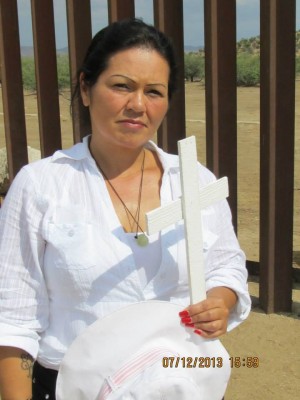
Alicia Cervantes holds a cross symbolizing one of the countless people who died attempting a border crossing.
Alicia first came to Los Canales last year with a group of students from UVU who were doing a supply drive and bringing presents for kids living in Los Canales. She decided during this trip that she had to return. “When people saw we had blankets, they swarmed us. And we didn’t have enough. They started grabbing the blankets from our hands, from our arms,” she says. “I understand why they did what they did. They were literally in survival mode. They were soaking wet, in the rain.” What really broke her heart was the people who attempted to form an orderly line to wait for their turn. The ones who rushed for the blankets grabbed everything, and her group had nothing left to give the people who waited. As her group drove away, she could see the line of people still staring at them in despair and confusion, the rain pouring down on them. “I told myself, next time I come back with blankets I’m going to have enough,” she says in tears. “I made a promise, that I would come back, next time with enough blankets.”
More than half of Los Canales’ inhabitants have been living here for more than a year, a study by Tijuana’s Colegio de la Frontera Norte found. There is no end in sight to the misery they live on a daily basis—only worse suffering.
On her most recent trip, Alicia spoke with a man who had just been beaten up by police. His nose was still bleeding, and he couldn’t lift his eyes as he spoke. “After they beat him up, they gave him a citation,” she says. “It was like he’d lost all hope in humanity. He’d lost his pride. They’d humiliated him.” He was trapped, he was being punished for it, and there was nothing he could do.
One woman Alicia met explained that she has cancer. “She has no money—what is she going to do? She has pretty much accepted that she is going to die. She just kept bawling.”
At the same time, the strength and tenacity of the people of the canals is immense. So many have sacrificed everything for their families, refusing to give up despite the brutal challenges that never seem to end. Refusing to be helpless victims, many are taking the most profound risks possible in search of a better life.
Many of those deported had no criminal record—and the vast majority had committed no serious crimes. They were only trying to create a decent life in the U.S. for themselves and their families. In fact, even veterans in the U.S. military have been deported. Hector Barajas, himself a deported veteran, has organized a support group for veterans deported to Tijuana.
Making matters worse, police have announced they’ll be raiding Los Canales in mid-June. That means the people living there will be forced out of the only shelter they have, with nowhere else to go. It wouldn’t be the first time—before Los Canales, people lived in a place called Tent City, which was raided in 2013. Not only are these raids brutal and unjust, they also wear down the morale of people who have so little left to hope for.
Many stay in Los Canales in the hopes of making another attempt to cross the border—an arduous journey that leads many to their death. Some, unsure they could survive the crossing, stay because they feel closer to their families here than anywhere else. For those with loved ones who live close to the border, there is a place called Friendship Park where they can talk to each other through the border wall, though plastic webbing keeps them from even reaching through to touch one another or hold hands.
If you’re wondering how this work relates to climate justice, the two are inseparable. Corporate plunder of Latin American countries forces millions of people to flee north as refugees, though they aren’t recognized as such by the corporate-fueled regime. The same extractive industries that destroy environments force people off their land, into cities, and finally, across the desert into the U.S. in a desperate attempt for survival. Some are forced to flee for economic reasons; others, because of environmental disasters, but in any case, the root causes are clear. Thus, we cannot talk about the harm climate change causes without talking about how its root causes impact human beings. And for those of us with a privileged life in the country responsible for plundering so many others, providing direct support for those who are suffering is a vital act of solidarity.
For many, the long stretch of desert leading to a new life in the U.S. is the end of the road. The sadness of this fact hit home for Alicia while visiting a cemetery for unidentified bodies found along their journey. “It looks like a normal cemetery—flowers, grass, tombstones—but you have to walk down a dirt path, through a fence, and you feel this horrible eeriness. There’s pain, so much pain. It’s a heavy feeling. And you look to your left, and there’s bricks—hundreds of bricks. And most of them say ‘John Doe’ or ‘Jane Doe.’ The awful thing about that place, when you’re there and you realize there’s 700 unidentified people—all I can think of is knowing there are 700 families out there looking for their loved one.”
Alicia and the Border Angels staff dropped off water jugs in the desert for those who are crossing. The Border Patrol presence was astounding, she says—troops gathered as if preparing for battle, helicopters flying overhead.
West of the desert, west of the canals of Tijuana, the wall that causes such misery finally comes to an end in the tides of the Pacific Ocean. But the struggle does not. Regularly, people try to swim around the wall.
“It looks easy,” Alicia says, but they get pulled down. Rarely, if ever, do they survive. “They call it where dreams die.”
If you’re in the Salt Lake area, Alicia can arrange to have your donation picked up–please text or call her at 801-867-4562 to let her know what you have and where you are (texts are best). Comunidades Unidades is also collecting donations for her, and they’re located at 1750 Research Way (2770 South) #102 in West Valley. Additionally, Centro Civico Mexicano will be collecting donations from 7 p.m. to 10 p.m. during a night of dance performances on June 14 and is located at 155 S 600 W, Salt Lake City. You can also email Alicia at acervan2013@gmail.com.
Or, make a donation at the link above!
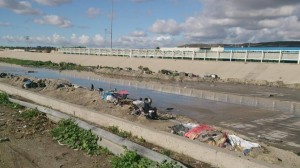
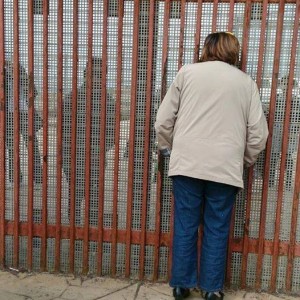
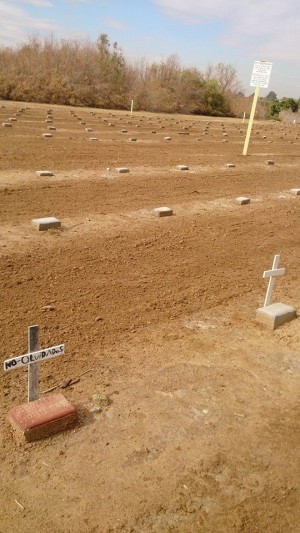
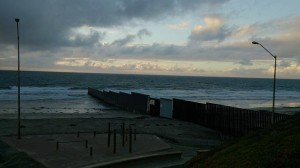
Leave a Reply